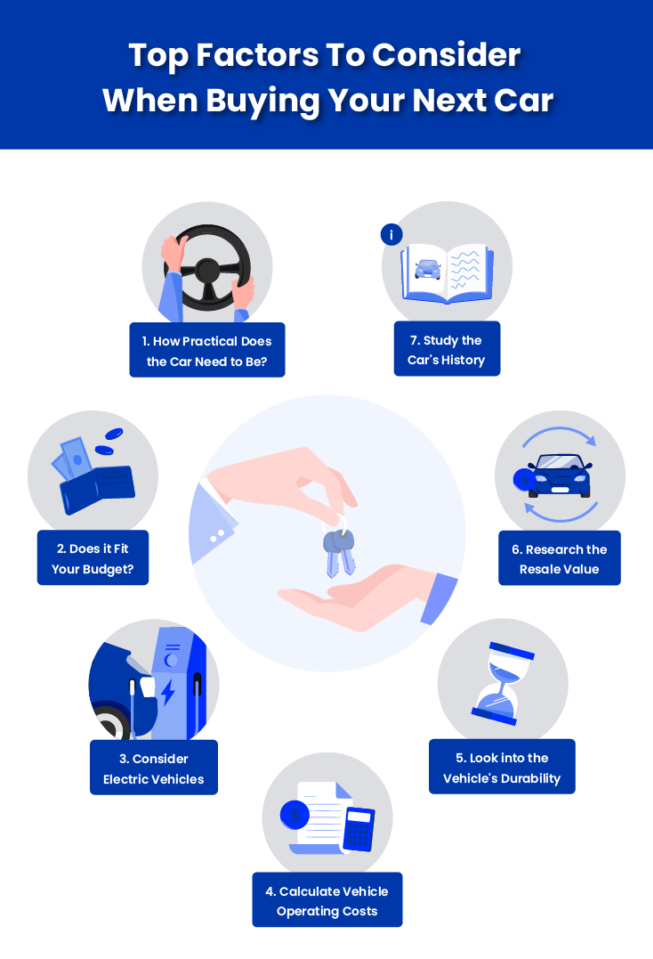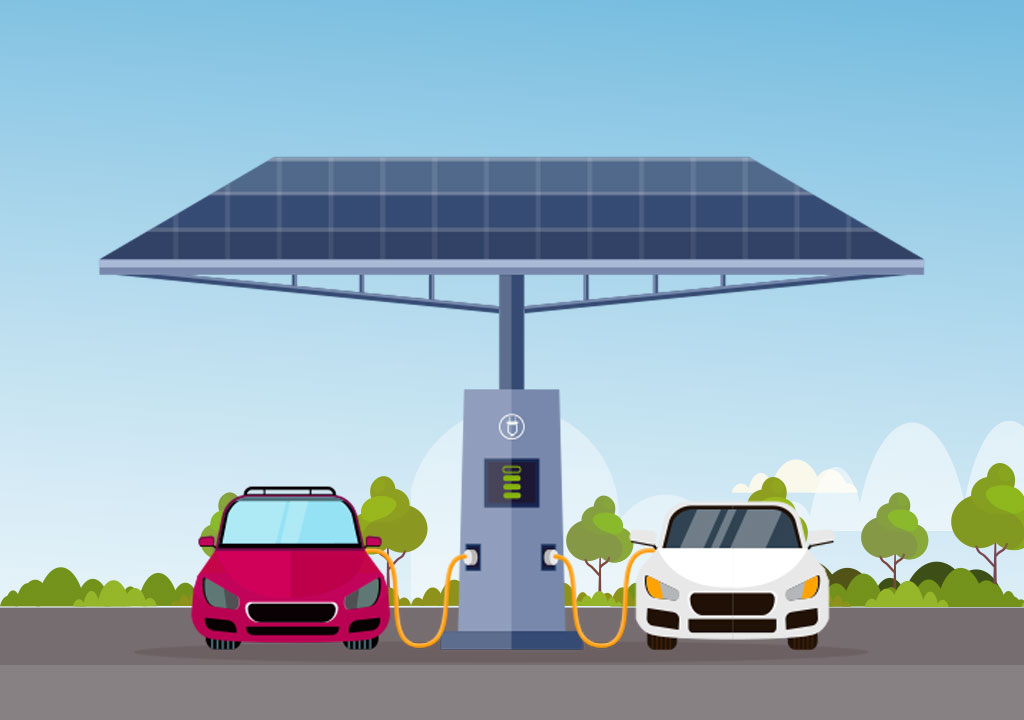When it comes to buying a car, there’s no one-size-fits-all solution. Your choice should reflect your lifestyle, budget, and personal preferences. Whether you’re a first-time car buyer or looking to upgrade your current vehicle, here are some essential factors to consider before making a decision.
Budget:
The first and most crucial factor to consider is your budget. Determine how much you are willing to spend on a car and stick to it. Remember that the cost of a car doesn’t end with the purchase price; you’ll also need to account for insurance, taxes, fuel, maintenance, and possibly financing if you’re taking out a loan.
When setting your budget, be realistic about your financial situation. Avoid stretching your finances too thin, as this can lead to stress and financial instability down the road. Consider both the initial cost and the long-term expenses associated with the vehicle.
Vehicle Type:
There are various types of vehicles to choose from, including sedans, SUVs, trucks, and even electric cars. Your choice of vehicle type should align with your lifestyle and needs. Here’s a brief overview of some common vehicle types:
Sedans: These are typically more fuel-efficient and easier to maneuver in city traffic. They’re a great choice for singles or small families.
SUVs: SUVs offer more space, making them ideal for larger families or those who need extra cargo capacity. They’re also popular for their ability to handle different terrains.
Trucks: Trucks are known for their towing and hauling capabilities. If you require a vehicle for work-related purposes or outdoor activities, a truck might be the right choice.
Electric Cars: Environmentally conscious buyers may opt for electric cars. They offer reduced emissions and lower operating costs, but charging infrastructure may still be a consideration.
Consider your daily commute, the number of passengers you’ll be carrying, and any specific requirements you have for your vehicle when deciding on the type.
Fuel Efficiency:
Fuel efficiency is an essential consideration, especially if you plan to use your car for daily commuting or long road trips. A fuel-efficient vehicle can save you money on gas in the long run and reduce your carbon footprint.
Check the vehicle’s miles per gallon (MPG) rating, and consider whether a hybrid or electric vehicle might be a viable option. Keep in mind that fuel-efficient cars can vary greatly in size and style, so you don’t have to sacrifice your preferred type of vehicle for better gas mileage.
Safety Features:
Safety should be a top priority when choosing a car. Modern vehicles come equipped with a wide range of safety features, such as anti-lock brakes, airbags, stability control, and advanced driver assistance systems (ADAS).
ADAS includes features like adaptive cruise control, lane departure warning, automatic emergency braking, and blind-spot monitoring. These technologies can significantly enhance your safety on the road and reduce the risk of accidents.
Check the safety ratings of the cars you’re interested in, and consider which features are most important to you and your family’s well-being.
Resale Value:
While it may not be at the forefront of your mind when purchasing a new car, resale value is a critical factor to consider. Some cars depreciate faster than others, meaning they lose value more quickly over time. This can have a significant impact if you plan to sell or trade in your vehicle in the future.
Research the resale value of the make and model you’re interested in. Brands with a reputation for retaining value can often be a smart investment in the long run.
Reliability and Maintenance Costs:
Nobody wants a car that constantly needs repairs or has high maintenance costs. To avoid these headaches, research the reliability ratings of different car models. Consumer reports and online reviews can provide valuable insights into the long-term durability of a vehicle.
Additionally, consider the availability and cost of replacement parts, as well as the manufacturer’s warranty. A reliable car should offer peace of mind and fewer unexpected expenses down the road.
Test Drive:
Before finalizing your decision, always take the car for a test drive. This hands-on experience will help you assess factors such as comfort, visibility, handling, and noise levels. Pay attention to how the car feels while driving and whether it meets your expectations.
During the test drive, ask questions and take your time to explore the vehicle’s features. Don’t rush this step, as it’s a crucial part of the decision-making process.
Resale Value:
While it may not be at the forefront of your mind when purchasing a new car, resale value is a critical factor to consider. Some cars depreciate faster than others, meaning they lose value more quickly over time. This can have a significant impact if you plan to sell or trade in your vehicle in the future.
Research the resale value of the make and model you’re interested in. Brands with a reputation for retaining value can often be a smart investment in the long run.
Environmental Impact:
If you’re environmentally conscious, you may want to consider the environmental impact of your vehicle. Fuel-efficient and electric cars are greener options compared to gas-guzzlers. Additionally, some regions offer incentives for purchasing eco-friendly vehicles, which can further reduce your costs.
Ownership Costs:
Beyond the purchase price, take into account the ongoing ownership costs of the vehicle. This includes insurance rates, taxes, registration fees, and the cost of regular maintenance. Owning a car involves more than just the initial expense, so make sure you can comfortably cover these costs over time.
Resale Value:
While it may not be at the forefront of your mind when purchasing a new car, resale value is a critical factor to consider. Some cars depreciate faster than others, meaning they lose value more quickly over time. This can have a significant impact if you plan to sell or trade in your vehicle in the future.
Research the resale value of the make and model you’re interested in. Brands with a reputation for retaining value can often be a smart investment in the long run.
Ownership Costs:
Beyond the purchase price, take into account the ongoing ownership costs of the vehicle. This includes insurance rates, taxes, registration fees, and the cost of regular maintenance. Owning a car involves more than just the initial expense, so make sure you can comfortably cover these costs over time.
In Conclusion:
Choosing the right car is a significant decision that can affect your daily life and long-term financial well-being. By carefully considering these factors, you can make an informed choice that aligns with your needs, preferences, and budget. Remember that research is key, and taking your time to explore different options and test drive vehicles is essential to finding the perfect car for you. Happy car hunting!




